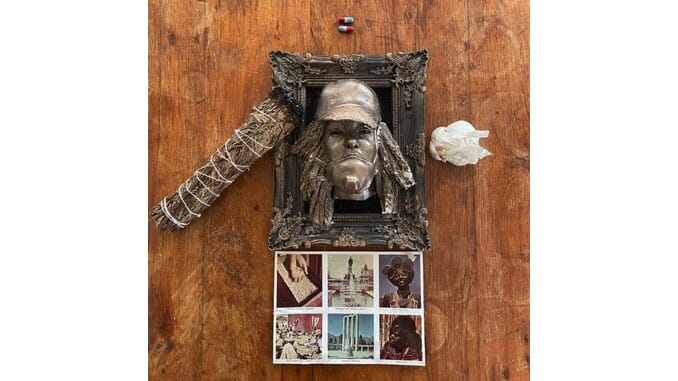
Earl Sweatshirt has been more prolific than a myth, but less accessible than a rap star. He’s conscientious about his status as a Black artist, was compared to Illmatic-era Nas as a teenager, has spent time living at a therapeutic school for at-risk boys (amid a juvenile but nationwide campaign to get him back home), and has dreads like a Jamaican in Flatbush. Earl is the son of an educator and a South African poet; the result of the arts and education crashing together to form a rap phenom. He’s yielded excellent results in the past, with him making the most out of his brevity and his lack of grand gestures. Earl Sweatshirt challenges the listener, not with music, but rather by questioning what we are supposed to get out of the music. Forcing us to put the puzzle together isn’t him being a Serious Artist™; rather, he is doing it as protection, as our expectations have always been more than he can handle. 2018’s Some Rap Songs is brilliant with its avant-garde jazz and Mach-Hommy-inspired production, but the album is known for its abstraction as much as the bridging of the gap between his parents. Whatever the album, Earl Sweatshirt is known for sly ingenuity, as opposed to the visceral writing he first entered his career with.
SICK! maintains that slowly revealing demeanor, but gives us some of the most clearheaded raps of his career. On “2010,” he talks about his relationship with his mom (“’03, momma rockin’ Liz Claiborne / Had her stressin’ up the wall playin’ Mary J. songs / Rainy day came, couldn’t rinse the stains off”), UCLA Law Professor Cheryl Harris, alluding to the drug and behavioral problems he had that year as Odd Future was blowing up. Backed by Black Noi$e’s potent production, which sounds like walking on gravelly sand at the beach, “Visions” features some of the most upfront lyricism we’ve ever heard from Earl, with him telling us, “I just be weary of self.” Being Earl Sweatshirt isn’t just protecting yourself from the public, but also being self-conscious because of your own inner demons and pain.
Claustrophobic New York underground rap duo Armand Hammer show up with their humanist bars on “Tabula Rasa,” the best song on the record. Elucid is a power running back, punishing you through the tiny holes in your defenses, flowing with bass in his voice. billy woods is more of an enigma than Earl, rapping with brilliance and hieroglyphics about smoking weed in Harlem and foreign cars. Where their previous collaborations were more abstract, this features them over a solo piano and a sample that goes over their vocals like a 2000s Roc-a-Fella track. Armand Hammer and Earl work because they are not trying to one-up one another. The chemistry stems from a rational system of thought, a reflection of self-assurance through pain that they both share. For both Earl and Armand Hammer, they’ve learned there are joys in life, no matter whether your livelihood gives you reason to find those delights at all.
If there is a song that features Earl’s trademark world-weariness in a maximalist sense, it is “God Laughs.” In vocals that sound like he’s as omnipresent as the man who runs The Truman Show, Earl addresses his grandfather’s dementia: “Through his brain getting chipped away at daily / His body on a road where his mind flailed and funeral whaled us / No beluga, no Bob, just mood swingin’ / True pain, I couldn’t eat or sleep for seven days.” To see your grandparent’s mind erode is an example of life’s fragility. For someone like Earl, a precocious artist and person, that is devastating. Decay comes for us all, even grandparents with the most wisdom life can offer.
This album is 24 minutes, but it gets the most out of those minutes that Earl ever has. It is brief, for sure, but it is packed with densely packaged rhymes and rewarding musical numbers that are majestic—“Lye” would not have sounded out of place on Prodigy’s Return of the Mac. Recently, Earl Sweatshirt became a father. True to form, that is not on the record. Earl keeps his kid as private as possible, besides some mention of fatherhood in interviews he has done. A lesser artist might have a song specifically about his son on this album, but Earl is too intuitive for that. Instead, what he does is show us the progression of life in an oil painting. From his grandfather to his father and now to Earl, the soul of man is complex and constantly changing from pain to peace. It makes sense that the kid who was once in Samoa would make an album about trying to move past the shadows and ghosts of his life, with concision but no oversharing.
Jayson Buford is a Brooklyn-based music critic for Rolling Stone, GQ and Stereogum, and a psychotic New York Knicks fan.